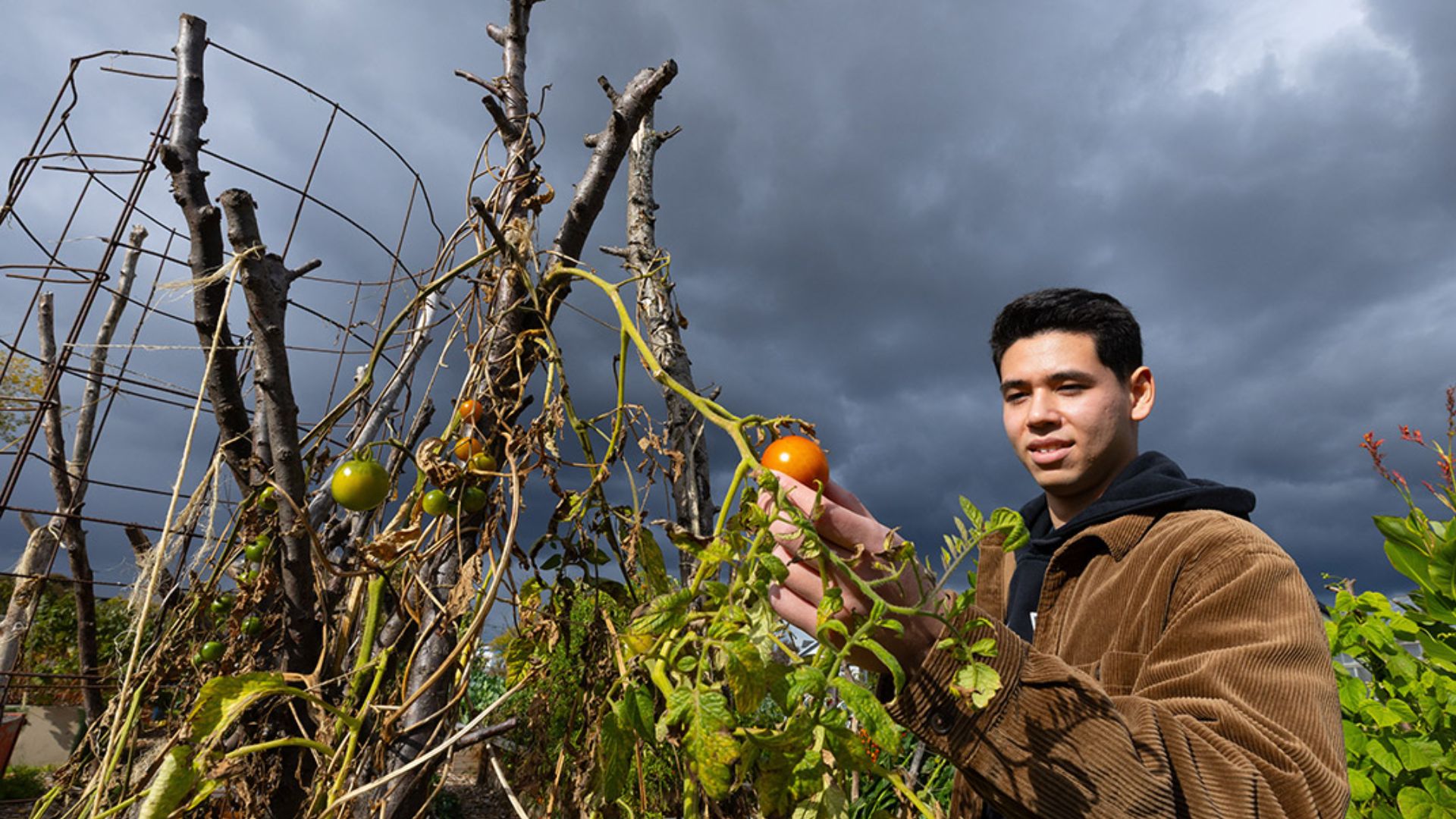Local News
Students take the lead in expanding RIT’s Climate and Sustainability Leadership Program into a growing movement for environmental action and community engagement

Rochester, New York – What began as a small pilot project at the Rochester Institute of Technology is now evolving into a dynamic, student-driven movement dedicated to building a more sustainable future. The Climate and Sustainability Leadership Program (CSLP), launched in 2024 by RIT’s Office of Sustainability, is no longer just a classroom initiative—it’s a living network of student leaders, mentors, and community partners all working together to redefine what sustainability leadership looks like on campus and beyond.
The program’s expansion over the past year has been remarkable. What started with just 60 participants in its inaugural class has now grown to nearly 140 students from a wide range of majors, backgrounds, and experiences. Through a blend of classroom discussions, campus projects, and collaborations with Rochester-area organizations, the CSLP gives students the tools and connections they need to transform their ideas about sustainability into meaningful action.
But what’s truly unique about the program this year is the way students themselves are taking charge. The introduction of paid catalyst roles—a new leadership model within CSLP—has given four returning students the opportunity to shape the program’s direction and mentor their peers. These catalysts are Jade Lewis (environmental science), Martin Bassett (mechanical engineering), Thomas Wills II (computer engineering), and Isaac Othuon (electrical engineering)—all alumni of CSLP’s first cohort.
Their mission is to serve as bridges between the program’s staff and the wider student body, helping organize events, lead sustainability discussions, and create a stronger sense of community around shared values.
“Our goal is to catalyze connection,” said E Turpin, program specialist for Sustainability and Strategic Planning. “We are exploring what long-term student leadership can look like in sustainability at RIT and how students can continue to grow over two, three, and four years.”
Alongside Turpin, Tom Connelly, assistant director for Campus Sustainability, co-facilitates the program and works closely with the catalysts to ensure that students’ voices are at the center of its evolution. Together, they are guiding CSLP through what they call its “Pilot 2.0” phase—a stage focused on creating lasting leadership pipelines and deepening the experiential learning process.
During the academic year, participants take part in a mix of on-campus discussions and off-campus excursions that touch on a wide range of themes—from environmental justice and food systems to civic engagement and community partnerships. Recent activities have included a reflective trip along the Erie Canal, a native planting project at Tait Preserve, and a Rochester Sustainable City Tour.
In November, CSLP will collaborate with RIT’s Center for Leadership and Civic Engagement to host Omar Aponte ’24 Ph.D. (sustainability), now a data manager at the Climate Solutions Accelerator, for a campus discussion about career pathways and climate leadership.
These experiences are designed around the United Nations Sustainable Development Goals (SDGs), offering a global framework that helps students link their local actions to international challenges such as climate change, poverty, and responsible resource use.
For many students, the program has completely reshaped how they think about sustainability.
“All I thought was sustainability was recycling and green energy,” said Isaac Othuon, one of the student catalysts. “I never realized that was just part of it. There was a social aspect that I did not even consider. As a catalyst, I am still learning, while also helping others come to their own epiphany moment.”
That sense of personal growth and shared discovery is a major part of CSLP’s culture. Students are encouraged not only to learn from experts but also to learn from one another—to collaborate, challenge assumptions, and think critically about their roles in shaping a sustainable future.
For Martin Bassett, stepping into a catalyst role has been a meaningful way to give back. “The most rewarding part has been helping create the same positive experience that I had last year,”
Bassett said. “It’s meaningful to support newer members and give back to a program that inspired me in the first place.”
Jade Lewis, who leads RIT’s Zero Waste Arena team in addition to her role as a catalyst, says the experience has strengthened her communication skills and boosted her confidence as a leader. “CSLP improved my communication skills and opened my mind to different attitudes about sustainability and leadership,” she said. “It’s exciting to see the different ways we can equip students as sustainability leaders and foster conversations about sustainability at RIT.”
Meanwhile, Thomas Wills II says the program’s community focus is what continues to inspire him. “I’ve always felt a moral responsibility to take care of the planet and our fellow humans,” he said. “CSLP’s greatest asset is its ability to connect members with passionate people and projects in Rochester and beyond.”
Those connections—between students, staff, and the broader community—are the foundation of what makes CSLP thrive. Every discussion, event, and reflection is designed not only to educate but also to empower students to take ownership of sustainability as both a professional skill and a personal value.
“CSLP is still young, but we see it as a place where students can explore how their studies, whatever their field, intersects with building a sustainable future,” Turpin said.
The program’s growth also demonstrates RIT’s broader commitment to embedding sustainability into every part of campus life—from operations and facilities to academics and student leadership. The Office of Sustainability views CSLP as a model for how universities can cultivate meaningful engagement by giving students real responsibility in shaping the direction of programs that impact their peers and communities.
At its heart, CSLP isn’t just about environmental action—it’s about building hope and agency among the next generation of changemakers.
“At the start of the program, we always ask whether students feel hopeful about the future of sustainability,” Othuon added. “It’s usually split. But as the program goes on, I want people to realize they’ll be at the wheel of change someday.”
As the Climate and Sustainability Leadership Program continues to grow, its student leaders are proving that sustainability is more than a concept—it’s a shared commitment to curiosity, collaboration, and care for the planet and each other. What began as a small pilot at RIT is now setting the stage for a future where every student, no matter their major, can be part of a larger movement toward lasting change.

-

 Local News12 months ago
Local News12 months agoNew ALDI store close to Rochester to begin construction in late 2025 or early 2026
-

 Local News12 months ago
Local News12 months agoRochester Lilac Festival announces exciting 127th edition headliners
-

 Local News10 months ago
Local News10 months agoCounty Executive Adam Bello and members of the county legislature celebrate exceptional young leaders and advocates at the 2025 Monroe County Youth Awards
-

 Local News10 months ago
Local News10 months agoThe 2025 Public Market Food Truck Rodeo series will begin this Wednesday with live music by the Royal Bromleys